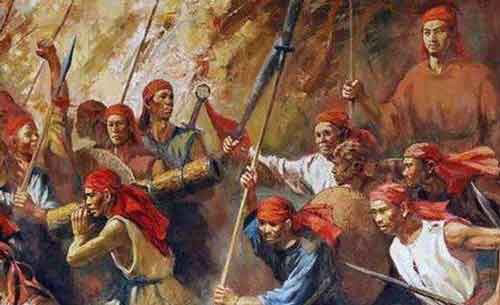 |
Peoples' movements and protests |
 |
|
MobilizationsJesus and solidarity in everyday lifeMuhammad and the revolutionary communityZhu Yuangzhang and the Secret SocietyIndia: anti-bureaucracy stolen by the intellectualsBack to Movemens against empiresBack to Old movementsBack to main page
|
Zhu Yuangzhang and the Secret Society
The popular form of resistance of the Confucian Chinese Empire was traditionally the secret society. It had its own counter-hierarchy, it was usually based on Buddhist or Taoist, i.e anti-bureaucratic, principles, it stood in principle for equality between the sexes, and it did not differentiate between rich and poor. The function was a mixture of insurance fund and insurgency organization. Many Chinese revolutions from the 20th century onwards have been organized – at least in the beginning – by secret societies, even in the 20th century. Yes, if you want, you can see the Chinese Communist Party as such in the beginning. In the first half of the 14th century, China
was ruled by the Mongol Empire. Its main interest was to maintain
trade between China and Europe
and to protect the privileges of the Mongols at the expense of the
Han Chinese. It was therefore poorly tolerated. Gradually, the different groupings merged into larger ones. The most effective of the commanders, the peasant son Zhu Yuangzhang, prevailed because he proved unsurpassed in creating alliances between the peasants and the educated middle class, and finally defeated in 1368 the last Mongol emperor and proclaimed himself as such. The new regime, the Ming, pursued a pro-peasant policy, carried out a land reform, withdrew China from world trade, planted trees, and maintained a jealous centralist policy that eventually created corruption and encouraged new peasant uprisings led by secret societies. Reading |
